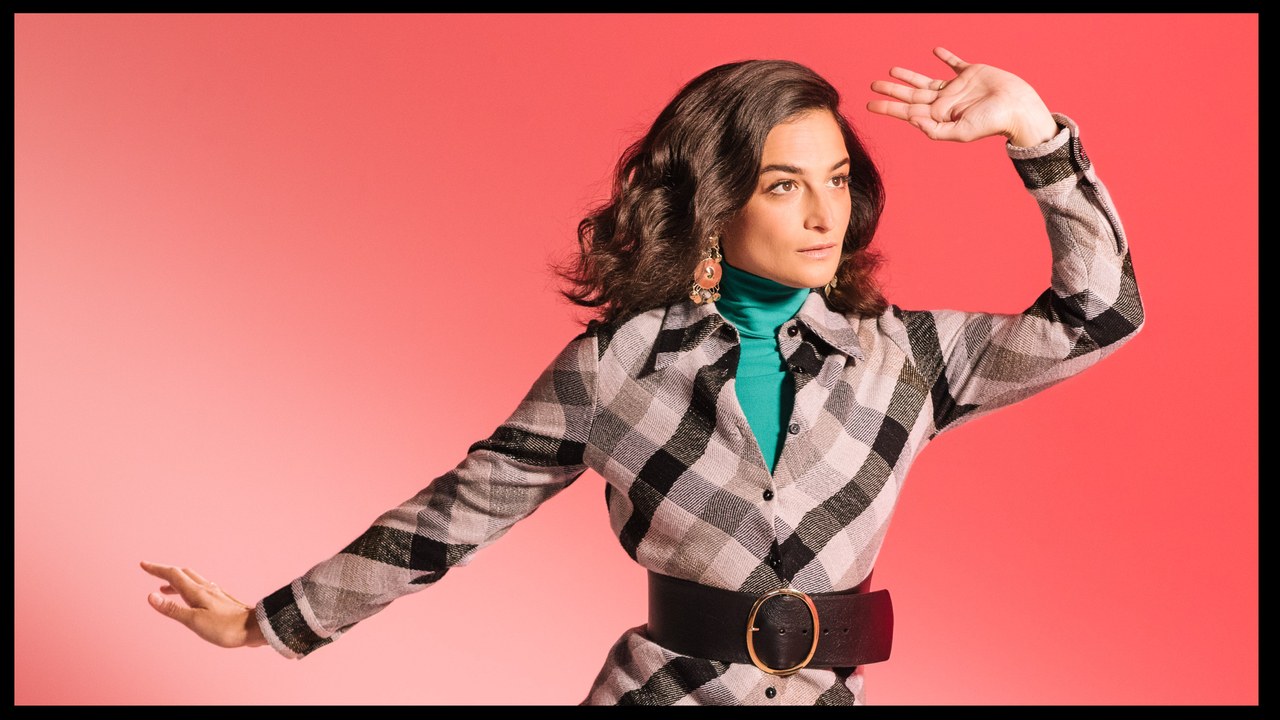Jenny Slate Found Love in a Hopeful Place

To do this, Slate approaches her comedy like a date—you arrive with your best stories in mind, then change the message or delivery depending on the audience. After months of touring, she was ready. “I became more comfortable with approaching themes that, for me, were maybe not so comfortable before because they were sad,” she says. Telling sad stories certainly doesn’t make the pain behind them go away, but at least she could make them funny.
Of course there’s love in Slate’s stories, too. Her meet cute with Shattuck begins as all the best do: offline. “I met him through friends, which is nice in a world where people are meeting each other on their phones through pictures they’ve made sure are perfect,” she says. They lost touch for a while—but six months after their first meeting, they saw each other again in New York and exchanged emails. “I noticed that when I was writing to him, I really, really bloomed.” And as she started to write her book, she realized some of her best work was in emails to Shattuck. “When I wrote to him, I was my most real self.” So she wrote one more, suggesting they become friends. You know how the story ends: “A year and two days after that email he asked me to marry him.”
“He has truly never let me down,” she says. “He’s romantic and caring, and he treats me like the person that I know that I am. Because I hold him in such high regard, and he treats me like such a dear friend, I work on growing and changing in a way that doesn’t involve shame. It’s just like, ‘Wow, I’m so excited that I can be myself with this person. And I seek to continue to expand.’”
It helps that he is, in Slate’s words, “a well-adjusted feminist man.” It’s a quality that wasn’t easy to find. “There are a lot of dudes out there that think they’re allies because they’re just not as gross as they used to be,” she says. “That’s not good enough. And moreover, they’re sensitive about how gross they’ve been able to be in their privilege and patriarchy. I don’t feel like anybody deserves an award for not being completely repulsive. I’m fortunate that my partner isn’t that way.”
Slate tells a particularly horrifying story in Stage Fright about a date who showed up in a full suit of armor. (Yes, really.) “It’s a true story,” she says. “And it’s a huge bummer, in every way. I heard he feels really bad about it.” That doesn’t excuse putting Slate into an uncomfortable position of having to decide how to react. “It’s a typically tone-deaf patriarchy-oriented move. I don’t really know a lot of feminist people, whatever your gender is, who would make a decision for the whole group that’s just based on how they want to behave.”
That date didn’t turn into a relationship, obviously, but Slate is open about being a lifelong “boy crazy” romantic. Only now, in her 30s, is she better understanding what drives that desire for companionship. “I think I get lonely really easily,” she says. “I get waves of loneliness the way pregnant women get morning sickness. It just comes. It’s part of my human condition. I have it now, even though I am going to get married to the love of my life.”
It’s something she knows she’ll need to work on her whole life: how to tolerate it. “Sometimes the word tolerate sounds like you’re going to be in pain and just have to be quiet—but that’s not what I mean,” she explains. “It’s to be able to examine it and realize that it’s not permanent. I just might need a lot. I might be hungrier than other people. All I know is that I’m tired of defining it as something that’s wrong with me. It’s a part of who I am.”